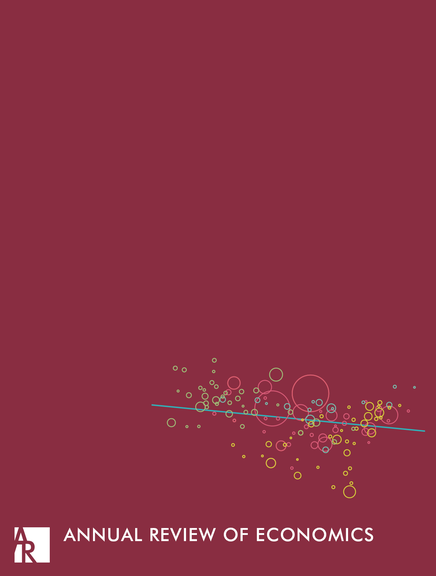Early Childhood Development, Human Capital, and Poverty
IF 11.4
2区 经济学
Q1 ECONOMICS
引用次数: 10
Abstract
Children's experiences during early childhood are critical for their cognitive and socioemotional development, two key dimensions of human capital. However, children from low-income backgrounds often grow up lacking stimulation and basic investments, which leads to developmental deficits that are difficult, if not impossible, to reverse later in life without intervention. The existence of these deficits is a key driver of inequality and contributes to the intergenerational transmission of poverty. In this article, we discuss the framework used in economics to model parental investments and early childhood development and use it as an organizing tool to review some of the empirical evidence on early childhood research. We then present results from various important early childhoods interventions, with an emphasis on developing countries. Bringing these elements together, we draw conclusions on what we have learned and provide some directions for future research. Expected final online publication date for the Annual Review of Economics, Volume 14 is August 2022. Please see http://www.annualreviews.org/page/journal/pubdates for revised estimates.幼儿发展、人力资本与贫困
儿童在童年早期的经历对他们的认知和社会情感发展至关重要,这是人力资本的两个关键维度。然而,低收入背景的儿童在成长过程中往往缺乏刺激和基本投资,这导致了发展缺陷,如果没有干预,这些缺陷在以后的生活中很难扭转,甚至是不可能的。这些赤字的存在是不平等的主要驱动因素,并助长了贫困的代际传递。在这篇文章中,我们讨论了经济学中用来模拟父母投资和幼儿发展的框架,并将其作为一种组织工具来审查幼儿研究的一些经验证据。然后,我们介绍了各种重要的幼儿干预措施的结果,重点是发展中国家。将这些因素结合在一起,我们就所学得出结论,并为未来的研究提供一些方向。《经济学年度评论》第14卷预计最终在线出版日期为2022年8月。请参阅http://www.annualreviews.org/page/journal/pubdates用于修订估算。
本文章由计算机程序翻译,如有差异,请以英文原文为准。
求助全文
约1分钟内获得全文
求助全文
来源期刊

Annual Review of Economics
ECONOMICS-
CiteScore
9.70
自引率
3.60%
发文量
34
期刊介绍:
The Annual Review of Economics covers significant developments in the field of economics, including macroeconomics and money; microeconomics, including economic psychology; international economics; public finance; health economics; education; economic growth and technological change; economic development; social economics, including culture, institutions, social interaction, and networks; game theory, political economy, and social choice; and more.
 求助内容:
求助内容: 应助结果提醒方式:
应助结果提醒方式:


